37
rural communities involved
Agriculture
Mexico
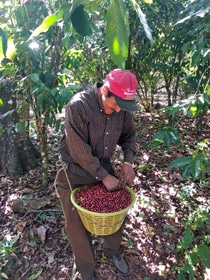
KAJVE - Prosperity comes in Grains
Mexico is one of the Top 20 countries for global coffee production. Here, 500,000 families depend on cultivating this crop for their livelihood; many of them are small producers from around 30 indigenous groups. In the southern part of the country along the Guatemalan border, Chiapas, with 51% rural population, ranks first among Mexico’s states in coffee production. However, 65% of Chiapas’ population falls below the poverty line, facing limited access to basic needs such as education, health and nutrition.
The Kajve project was born, in 2019, under the premise of improving the quality of life of coffee smallholders through increasing and stabilizing production through BASF technology and best agronomic practice in Mexico and Guatemala, bringing innovation to these growers while respecting the legacy mainly in three communities with high indigenous population of the State of Chiapas. Collaborating with UNESCO and partners, the project focuses on improving coffee yields and quality and including growers in formal value chains.
Farmers are taught to apply crop management and good agricultural practices by expert technical assistants with culturally appropriate methods that respect community traditions, ethnocultural diversity, and traditional techniques. Coffee cultivation is an integral part of their subsistence, familiar income, as well as part of the community identity of many indigenous groups and traditional landscape in Chiapas.
Why
Coffee rust, a foliar disease caused by a fungus, has been present in Latin America since the 1970s. While the disease had long been manageable for growers, in recent years incidences have increased, with significant negative effects on coffee yield and quality. The threat of rust in the area is latent and the adoption of technology low. Combined with the current low world market prices, this caused a 50% decrease in national coffee production in Mexico.
Increasingly volatile climate conditions can only be expected to exacerbate smallholders’ economic challenges. In some cases, this even drives them to deforest natural ecosystems to expand plantations. Hence, best practices that increase and stabilize farm productivity and coffee quality are vital to improve smallholder livelihoods sustainably while ensuring the protection of precious natural resources.
How
In a baseline assessment, UNESCO characterized the value of coffee traditional farming practices in the communities in scope. Together with our partners and starting from this baseline community analysis, we are exploring the role of alternative coffee production and trading systems in improving smallholder incomes and in stabilizing the prosperity of their families and communities. This is being done considering the traditions and heritage around coffee cultivation and in alignment with the UN SDGs. See the full report (available in Spanish) here.
The project comprises training on Good Agricultural Practices and Integrated Pest Management using educational plots, extension service with face-to-face visits to farms, support for farmers to rejuvenate coffee plantations and clean-field programs for the right management of farm waste. The training also features a strong component of environmental education, whose focus is on conserving biodiversity at the Biosphere Reserve and identifying existing water resources to reinforce production activities and the sustainable use of water. The cultural aspects were underscored through activities explaining concepts of Community Heritage, identification of cultural elements of coffee cultivation as a practice of generational transmission, inclusion of women and youth in farming practices. Project Kajve has been so successful that it was presented with the 1st place award at the UN Global Compact's LOGRA AWARDS 2023 in the Prosperity Category of “The best Business Sustainability initiatives”. See more at Ganadores Premios LOGRA 2023: Las mejores iniciativas de Sostenibilidad Empresarial Pacto Global México.
Result


1,338
smallholder coffee growers reached

10%
higher price for coffee beans for farmers in the program due to improved coffee quality

47
field demonstration plots stablished

3,659
training sessions on Good Agricultural Practices and Integrated Crop Management

145
farmer and field visits

142
long-lasting Personal Protective Equipment kits delivered to communities

4
collection point for empty agrochemical containers installed
SDGs
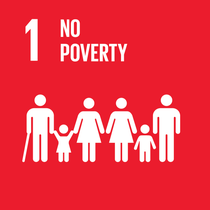
Enhancing farm income and farmer livelihood by helping them to increase yield, improve quality of coffee and facilitate access to potential customers in the food value chain.
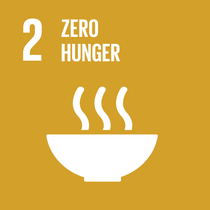
Together with partners, we support smallholder farmers to produce more high quality coffee beans by providing them with technical advice and plants for crop rejuvenation.
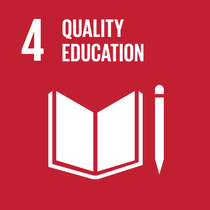
We promote agricultural education for farmers and their communities, increasing efforts to improve learning outcomes for people in vulnerable settings. This includes for instance school visits to raise awareness on environmental protection and deforestation.
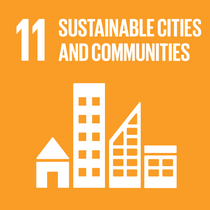
Training farmer communities on the responsible use of resources and relevance of environmental protection for the future generations. Intangible cultural heritage is a living element of the community’s interaction with nature. Such interaction should aim to use resources more sustainably, making agroecosystems more resilient.
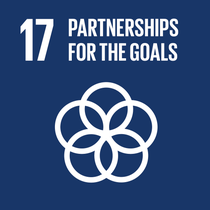
BASF works closely with UNESCO and partners in the coffee value chain to ensure agricultural methods that respect the community’s cultural identity and to facilitate farmers’ access to fair markets.
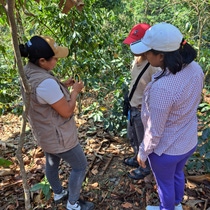
KAJVE 2.0 – Unlocking climate resilient coffee production through innovation and Nature-based Solutions
Chiapan coffee-growing communities are also already feeling the adverse effects of increasing climate volatility. In response to this, we have extended the KAJVE initiative in Mexico to investigate alternative coffee cropping systems fostering growers’ capability for climate change adaptation and mitigation.
Why
Despite the successes of project KAJVE, considerable challenges have persisted in recent years: increasingly volatile climate conditions further exacerbate the persistent vulnerability of cropped landscapes, low-yielding agronomic practices (in terms of both quality and quantity), and the unstable economic outlook of coffee production that threaten smallholders’ livelihoods and at times pressure them to deforest natural ecosystems to expand plantations.
How
KAJVE 2.0 addresses these challenges comprehensively, within the reference frame of the broader KAJVE program and with a view to scaling beyond it, to demonstrate that restoring complex agroforestry systems and enhancing ecosystem service provision in multifunctional landscapes, combined with innovation and regenerative practices, can:
- increase the income and resilience of smallholder coffee growers
- empower them through knowledge building
- restore natural resources and environmental services
- mitigate climate change.
In order to do this, BASF teamed up with Solidaridad, a Civil Society Organization with longstanding experience in the implementation of tropical coffee agroforestry systems—especially in Mexico—as well as the International Center for Tropical Agriculture (CIAT).
Farmers from the communities are trained on the adoption of high-productivity agroforestry system design; targeted replanting of native species and establishment of water retention structures; circular resource management (e.g., composting, efficient inorganic nutrient application, coffee wastewater treatment); management of pests and diseases also leveraging BASF technology. All efforts rest upon participatory dialogue with growers and their communities. Multi-stakeholder partnership ensures broad reach and diffuse impact.
The challenge is to now complete the Kajve intervention model with commitment by actors in the value chain—aligning economic incentive to empower growers to secure their own prosperity while achieving truly sustainable coffee production.
You can also learn more about this project here Advancing sustainability in coffee: Collaborative initiatives creating change
SDGs

Together with partners, we support smallholder farmers to increase yields sustainably and link to the value chain to ensure better prices—both of which promote higher incomes.

In addition to helping to raise smallholders’ income, we promote the inclusion of diverse fruit trees in coffee agroforests to supplement income and nutrition.
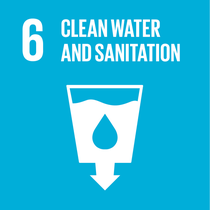
Farmers are trained on creating biofilters to treat coffee pulping residues and biological beds to manage agrochemical residues, both of which otherwise risk polluting groundwater. Examples of these are set up at demo sites. Practices to reduce the water footprint of cherry pulping are also disseminated.
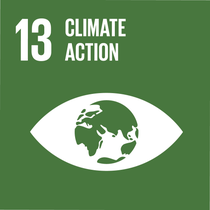
Training farmer communities on the responsible use of resources and importance of environmental protection for the future generations—connecting this with intangible cultural heritage is a living element of the community’s interaction with nature. Connecting such production with the value chain to promote sustainably produced coffee.

BASF works closely with Solidaridad, CIAT (International Center for Tropical Agriculture), Agroveterinaria Huimanguillo, and partners in the coffee value chain to ensure agricultural methods that respect the community’s cultural identity and to facilitate farmers’ access to fair markets.

Alas para el Campo: collaborating to protect the Monarch butterfly and other pollinators
Over the past 20 years, the Monarch butterfly population of North America has decreased significantly. Similar losses have been reported for other pollinators that are relevant to agricultural biodiversity. This is due to habitat degradation across the Monarch’s migration route and in the hibernation sites in the center of Mexico. Conservation efforts are bearing fruit, as the overwintering Monarch butterfly population in Mexico has significantly recovered. The Alas para el Campo initiative is contributing to the conservation efforts focused on the Monarch and other pollinators in Mexico and other countries of Central America and the Caribbean through the implementation of good agricultural practices as well as actions of conservation practices.
Why
The public-private cooperation project "Alas para el Campo" was initiated in 2019 by BASF and the German Corporation for International Cooperation (GIZ) commissioned by the German Federal Ministry for Economic Cooperation and Development (BMZ). The objective of the project is to promote the implementation of Good Agricultural Practices (GAP) on the migratory route of the monarch butterfly contributing to its conservation and that of other pollinators.
At the same time, the initiative is aimed at supporting farmers in the region and especially the families living and farming in protected areas in Mexico by implementing good agricultural practices such as the proper use and management of crop protection products.
How
A truly collaboration-oriented initiative, Alas para el Campo brings together farmers, business, government, academia and independent researchers to promote the care of the monarch butterfly and other beneficial organisms for agriculture. The project focuses on three action areas for sustainable impact: Good Agricultural Practices and conservation measures, communication and awareness, and capacity building.
Farmers are being trained on sustainable farming methods and the correct use of crop protection products, including the safe disposal of their empty containers. Meanwhile, refuge areas for the monarch butterfly and other pollinators are being created and maintained by them in Mexico, Central America and the Caribbean. The results of these actions were visible in their harvests as they benefited from improved pollination.
Result

6 ha
forests recovered in Mexico as a refuge for the monarch

430,000
square meters of refuge area

1,800
farmers trained

19.93
tons of empty containers collected
SDGs

We support the improvement of crop quality and yield through the promotion of sustainable agriculture.

Together with our partners, we have established pollinator gardens in different cities in Mexico, Central America & the Caribbean to generate awareness on the importance of pollinators.
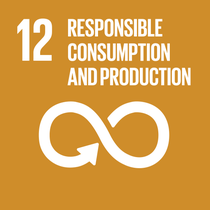
By the promotion of good agricultural practices, we are supporting the safe and responsible management of crop protection products and their waste.
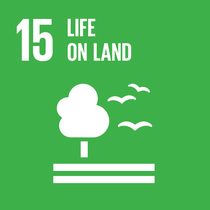
We are supporting ecosystem restoration for the care of the monarch butterfly and other pollinators through the implementation of good agricultural practices.

BASF works closely with Solidaridad, CIAT (International Center for Tropical Agriculture), Agroveterinaria Huimanguillo, and partners in the coffee value chain to ensure agricultural methods that respect the community’s cultural identity and to facilitate farmers’ access to fair markets.
